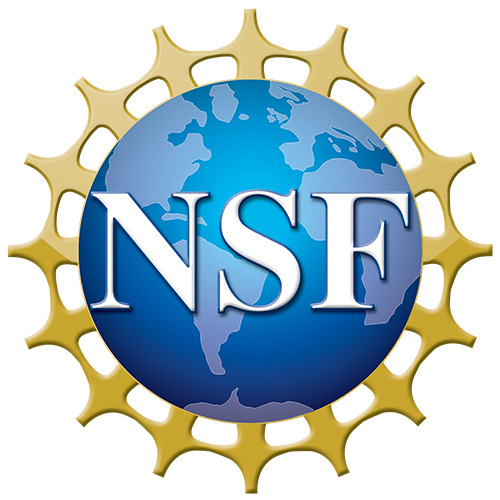
Thomas Iadecola, assistant professor of physics at Iowa State University, has earned a CAREER (Faculty Early Career Development) award from the National Science Foundation (NSF). The $470,000 grant will support Iadecola’s theoretical quantum dynamics research as well as educational outreach efforts designed to engage pre-college and college students in quantum physics.
The CAREER award is the NSF’s most prestigious award in support of early-career faculty who have the potential to serve as academic role models in research and education. Recipients are identified as leaders in advancing the missions of their departments or organizations.
“I am thrilled to receive this recognition from the National Science Foundation,” Iadecola said. “The award will provide critical support for my research group and our investigations in the field of quantum dynamics, as well as active learning opportunities in quantum physics for pre-college and college students, in particular members of underrepresented groups.”
Iadecola earned the CAREER award through the NSF’s highly competitive Condensed Matter and Materials Theory program for his proposal, “New Regimes of Coherent Nonequilibrium Dynamics in Quantum Many-Body Systems.”
The funds will support Iadecola’s research and outreach projects until 2027.
Research with an eye toward the future
Quantum computing is a new mode of computing based on the principles of quantum theory which relies on new forms of quantum hardware in order to operate. Making progress toward this exciting and forward-thinking way of computing requires understanding and explaining the behavior of energy and materials at the atomic and subatomic levels.
“Today’s classical computers encode information in bits with the value of 1 or 0 and this can be limiting,” Iadecola said. “Quantum computing looks beyond 1s and 0s uses qubits, which harness the power of subatomic particles that can exist in more than one state.”
These expanded states hold the key to unlocking new computing capabilities. Iadecola’s research in the field of quantum dynamics aims to understand how systems of many qubits evolve with time, with a view toward properties that can be harnessed for quantum computing.
Breakthroughs in quantum computing could advance how computers store and process information. This progress could lead to paradigm-shifting innovations in a wide variety of applications, from cryptography and drug design to materials discovery. Quantum computing could also accelerate calculations, which could revolutionize areas of finance, economics and artificial intelligence.
Iadecola’s research hones in on a universal problem in quantum many-body physics—quantum ergodicity. This ongoing challenge involves the loss or “scrambling” of information in particle quantum systems. This scrambling is detrimental to quantum computation because successful quantum computing hinges on preserving these delicate states and performing operations on them.
The CAREER grant will enable Iadecola and his team to research a variety of mechanisms that decrease or halt quantum ergodicity. They will also analyze the mechanisms for these losses on existing quantum hardware with an eye toward expanding these technologies for the study and manipulation of complex quantum systems.
The next generation of quantum computer experts
According to the NSF, quantum science and technology is a key national research priority. Sustaining leadership in this field requires a robust quantum workforce. To grow the quantum talent pipeline, Iadecola will use a portion of the CAREER funds to develop an interdisciplinary quantum computing curriculum at Iowa State University.
In partnership with Science Bound and Go Further organizations at Iowa State, Iadecola will spearhead outreach programs about quantum physics topics. He’s particularly interested in growing the number of individuals from underrepresented groups who participate in science, technology, engineering and mathematics. These programs will reach hundreds of pre-college and college students and tap into the popular excitement that surrounds quantum physics, using hands-on activities and active learning approaches.
“I look forward to furthering my research as well as leading efforts that help grow the next generation of talent who will drive new and exciting discoveries in the field of quantum computing,” Iadecola said.
For further details about this research, please visit this NSF site.